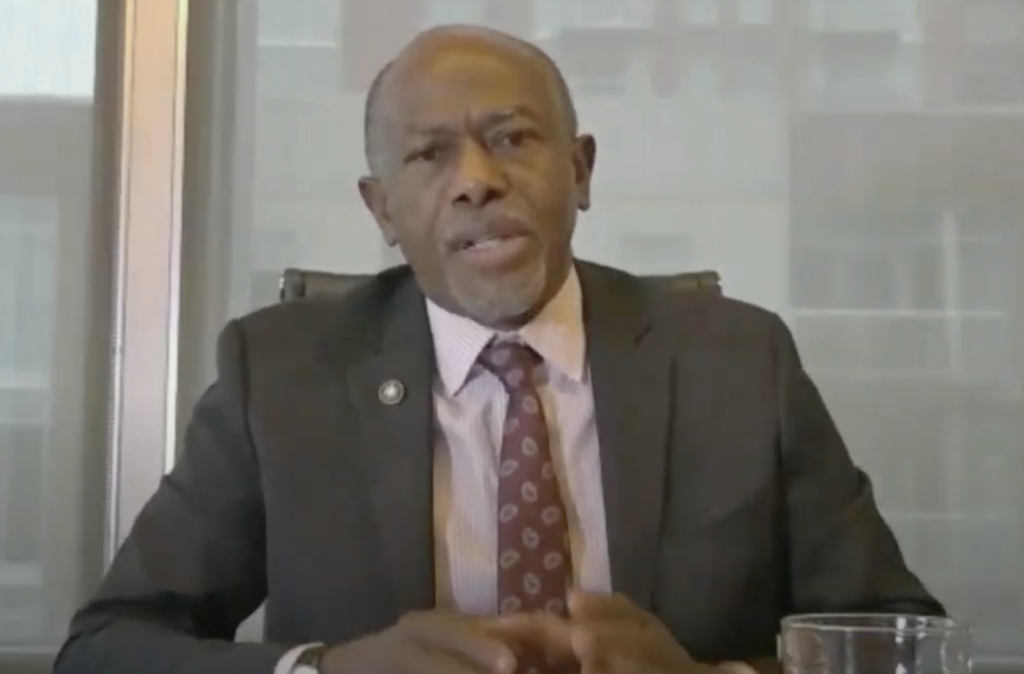
Meharry Medical College is asking Congress for billions of dollars to help combat disparities that have emerged in the testing and treatment of COVID-19.
Meharry president James Hildreth, who’s also an infectious disease specialist, testified remotely before the U.S. House Ways & Means Committee, which was discussing the disproportionate impacts of COVID-19 on minority communities, such as elevated fatality rates and less access to testing.
Dr. Hildreth asked that the country’s four historically black medical schools be put in charge of reaching minority communities. He cited a recent experience in Tennessee where the National Guard offered free testing in every major public housing project in the state. “Not surprisingly, the people living there were apprehensive, and they stayed behind closed doors,” he said.
In Nashville, the two-day blitz at 14 locations yielded just a small fraction of the total residents in public housing taking the test. Some testing tents sat empty at times.
“The desire to be trusted and the best of intentions to practice cultural competency — among African Americans in particular — is simply not enough to allay their fears of being used as experiments or overlooked and mistreated as unworthy of the best care,” Hildreth said in his written testimony. “Their history of abuse at the hands of America’s medical establishment, and of misunderstanding rooted in cultural differences, is too long and fraught with missteps.”
The Big Ask
Hildreth says HBCUs are “uniquely qualified” to navigate the long-standing racial divides that have resurfaced amid the pandemic.
He says Meharry; Howard University College of Medicine in Washington, D.C; Morehouse School of Medicine in Atlanta; and Charles Drew University of Medicine and Science in Los Angeles could establish the Consortium of Black Medical Schools, which would be led by Meharry.
They would provide expanded testing and contact tracing, as well as training for health workers and researchers in the “unique needs of vulnerable, low-income, African American and other underrepresented communities.”
Hildreth is asking for $5 billion over five years from the country’s stimulus packages to address disparities in COVID treatment. He repeated that request several times as committee members questioned him, and he made an even more emphatic plea in his written testimony.
“We only need your endorsement and a modicum of the nation’s resources to make a profound difference,” Hildreth said. “Let us take our place in this fight. We already are well-prepared and well-trained. But we must be well-armed. Please arm us.”

